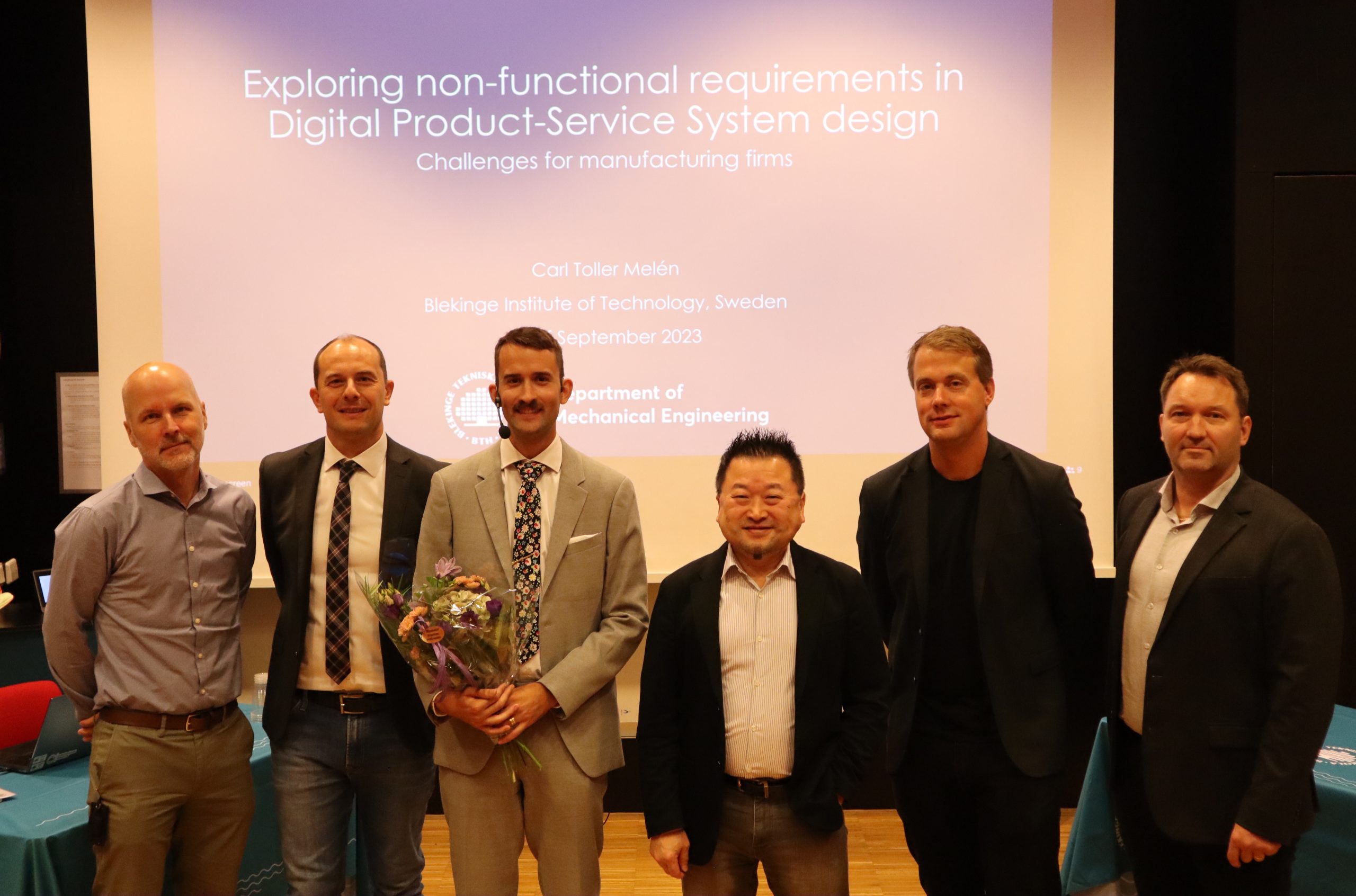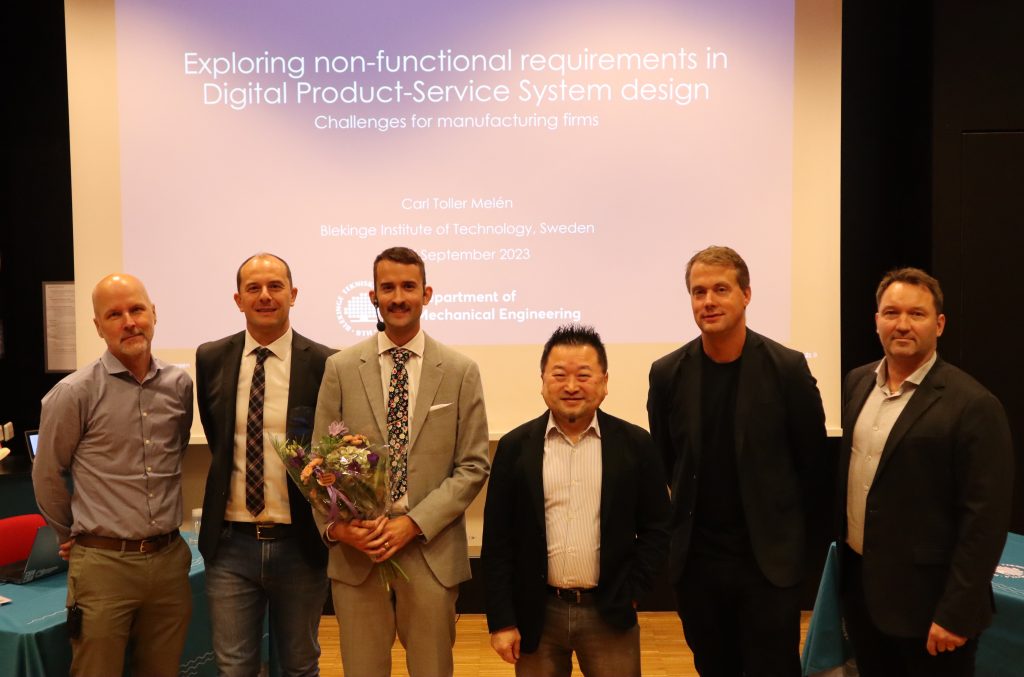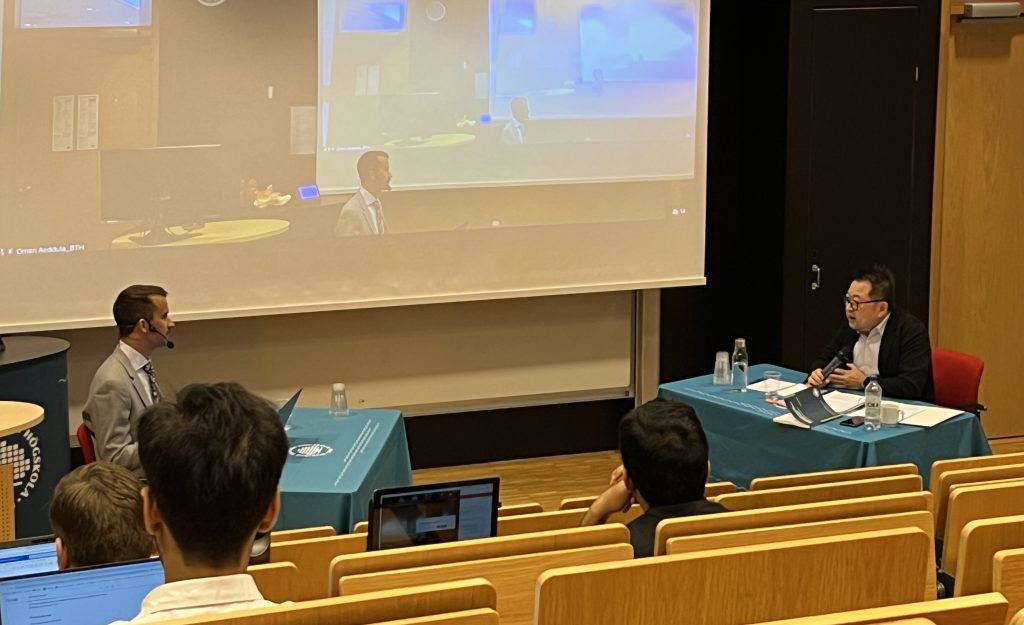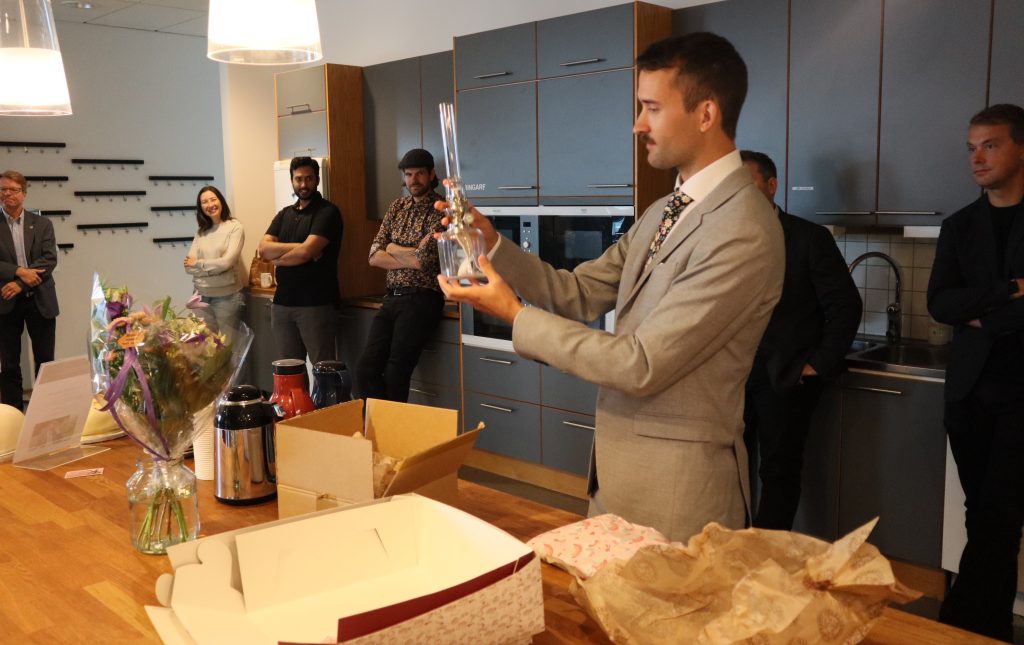
Congratulations Carl Toller Melén, Licentiate in Mechanical Engineering!
- Post by: Tobias Larsson
- 1st September 2023
- No Comment
Carl Toller Melén presented his licentiate thesis entitled “Exploring non-functional requirements in digital Product-Service System design” in front of an +50 people hybrid audience of physically present people and online listeners.
Carl made a popular presentation of the background of his research and the findings up until this point, where the servitization of indystry is a driving force for the manufacturing firm. The thesis consists of a summary part and two individual research publications and the presentation of the thesis landed in a summary of his findings. Carl has been working within applied projects like MD3S, TRUST-SOS, and ASPECT, and with partners like Dynapac, Volvo CE, Volvo Autonomous Solutions, Ericsson etc with funding from VINNOVA and KKS.

Opponent for the day was Professor Yong Se Kim, from University of Turku, Finland. Professor Kim with own extensive research in the field of Product-Service Systems dug deeper into details of the thesis with a bottom-up approach to explore what Carl had done, and why, in order to get context and knowledge knowledge around the material, and also to understand the different viewpoints of the research, leading up to a valuable discussion for both Carl, and the audience.

At the end also the audience had the chance to ask questions on the research.
Examiner Professor Tobias Larsson then concluded by declaring that Carl had passed the exam and achieved the licentiate degree. The event was rounded up with classic swedish fika!

Thesis abstract
The increased sophistication of customer needs pushes manufacturers toward integrated offerings where physical products and intangible services collaboratively generate value, also known as Product-Service Systems (PSS). This shifts the focal point from product performance to overall system functionality. However, this naturally increases the importance of requirements linked to the operation and the system’s behavior, e.g., reliability, safety, and flexibility. These kinds of requirements that dictate how a system should behave and operate in its context are called non-functional requirements. However, most manufacturing firms have a legacy of focusing mainly on functional requirements.
Alongside this trend, there has been an increasing affordability and availability of data. However, how this data can be utilized for value creation remains a question for the industry. Operational data can serve as a vital source of information about the PSS behavior and value delivery process. Since non-functional requirements depend on the operational context for measuring their performance, operational data can thus provide new insights.
This thesis aims to study the motivation for and challenges of working with non-functional requirements and value within Digital PSS design by manufacturing firms. Firstly, the management of non-functional requirements in the design process is studied. The empirical research determined that there are six challenges that a design team and organization face when working with non-functional requirements. The challenges highlight that non-functional requirements’ fuzzy and intangible aspects make them easy to neglect and hard to include in design and decision-making. A state-of-the-art review is conducted to identify possible remedies.
Onward, the intersection between data and value is explored. An overarching classification of operational data and how these can contribute to different forms of value creation is presented based on previous literature. Further, the analysis shows what kind of operational data can be collected using three levels of granularity. Experiences and reflections from multiple companies at different stages in their servitization journey are gathered to complement and expand the perspective on operational data and value.
Keywords: Product-Service Systems, Value, Non-Functional Requirements, Design Process, Operational Data
Thesis link: https://urn.kb.se/resolve?urn=urn:nbn:se:bth-24752
Video presentation
Coming…
